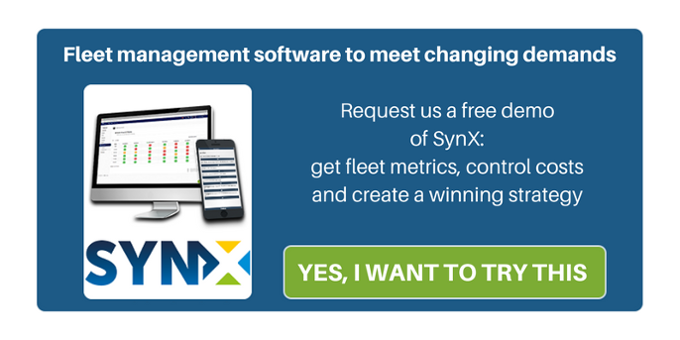
In companies of different sectors and scopes, fleet management aspects such as cost control or vehicle availability have become more and more subject to changing demands and situations. Sometimes strategies prove not to be effective long term and frequently need to be reassessed or even deeply modified.
Over the last few years, if not decades, there has been a general wave of disruption upon continuity and tradition, leading to job uncertainty and even affecting our everyday life. Mix that with the need to comply with increasingly stringent requirements, along with the unpredictable elements every work/profession has, and it might finish up as quite a shock for you and your fleet being forced to rearrange everything in some cases.
In particular, there are three variables we need to consider if our fleet management strategy needs to be modified in the event of changing demands—they need to be kept under control and never underestimated. What are we talking about? Let’s have a look.
1. Whichever strategy you decide to pick, costs should always be budgeted (as low as is practical)!
Cost control is always the top priority for fleet managers. If fleets or companies suffer any particular change because of seasonality or even customer changes, new products or even items that go out of production, global costs do not have to suffer. The challenge today is rather to find opportunities to divert wasted funds into good investments, but this can be done only if you are able to properly track all sources of costs. If, due to seasonality or product/customer requirements, cash flow is heading in one direction and you have proof of this, you are able to react, rebudget and concentrate on more productive activities.
2. Vehicles always have to be on the road
If vehicles are what you rely on in order to develop your business, their time on the road needs to be maximised whether the demands of public and business change or not. If you think about vehicles on the road, this involves many aspects:
- Safety is key for vehicles to run as much as possible, so drivers need to avoid incidents and collisions
- Maintenance is important as vehicles which are regularly maintained suffer less breakdowns or other complications
- Asset utilisation rate also has to be maximised, so vehicles have to be suitable for jobs specs and not sit redundant in the depot
- Compliance and working hours cannot be sacrificed, so a good combo of all these aspects should lead to maximise vehicle time on the road.
Once again, if you have the tools to measure safety, streamline maintenance and guarantee compliance as well as a high utilisation rate, you can make the most out of your vehicles as conditions demand.
3. Customer satisfaction needs to be a priority as well
There are a lot of businesses that have differing attitudes toward a high request and a low request. Sometimes they tend to struggle with a high volume of demand due to difficulty managing multiple tasks, while during a dip they are not as responsive due to there being less pressure or maybe a reduced workforce. In any case and in any demand, customer satisfaction needs to be a priority, and even the scheduling of jobs or allocation of resources has to be properly predicted and planned.



